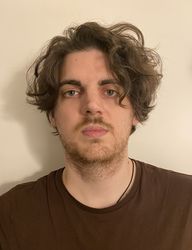MSc Pedro Hack
Technical University of Munich
TUM School of CIT
Department of Computer Science
Boltzmannstrasse 3
85748 Garching
Germany
Office: MI 02.05.036
Mail: pedro.hack (at) tum.de
Tel: +49-89-289-18-615 (usually easier to reach me via email)
Background
- Postdoctoral researcher at TUM since October 2022
- Doctoral student in Computer Science at Universität Ulm, 2018-2022
- Research Associate (Wissenschaftlicher Mitarbeiter) at Universität Ulm, 2018-2022
- B.Sc. in Mathematics, Universitat Autònoma de Barcelona, 2018
- B.Sc. in Physics, Universitat Autònoma de Barcelona, 2018
Research interests
- Quantum walks
- Quantum resource theories
- Computability and domain theory
- Order dimension
- Real-valued representations of order structures
- Decision and utility theory
Publications
- Pedro Hack, Daniel A. Braun and Sebastian Gottwald. On the relation of order theory and computation in terms of denumerability. (arXiv:2206.14484)
- Pedro Hack, Daniel A. Braun and Sebastian Gottwald. Computation as uncertainty reduction: a simplified order-theoretic framework. (arXiv:2206.13885)
- Pedro Hack, Daniel A. Braun and Sebastian Gottwald. Majorization requires infinitely many second laws. (arXiv:2207.11059)
- Pedro Hack, Daniel A. Braun, and Sebastian Gottwald. On a geometrical notion of dimension for partially ordered sets. (arXiv:2203.16272)
- Pedro Hack, Daniel A. Braun and Sebastian Gottwald. The classification of preordered spaces in terms of monotones: complexity and optimization. (arXiv:2202.12106)
- Pedro Hack, Daniel A. Braun and Sebastian Gottwald. Representing preorders with injective monotones (arXiv:2107.14669)
- Pedro Hack, Sebastian Gottwald and Daniel A. Braun. Jarzynski’s equality and Crooks’ fluctuation theorem for general Markov chains. (arXiv:2202.05576)
- Pedro Hack, Cecilia Lindig-Leon, Sebastian Gottwald and Daniel A. Braun. Thermodynamic fluctuation theorems govern human sensorimotor learning. (arXiv:2209.00941)
Teaching
- Introduction to Quantum Computing - WiSe 2022/23
- Neurotechnology: Brain-Machine Interfacing - WiSe 2021/22, Sose 22
